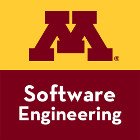Past events
Code Freeze 2023 - Tech Resilience
Thursday, Jan. 12, 2023, 8 a.m. through Thursday, Jan. 12, 2023, 4:30 p.m.
|
Sponsorship opportunities available. If you are interested please contact us |
Register now to avail early-bird discount!
| 8:00 AM | Registration / D'Amico catered Breakfast | Gateway Room |
| 8:45 AM | Welcome Remarks | Memorial Hall |
| 9:00 AM |
|
 Symmathecist, Engineering Manager at Honeycomb |
| 9:45 AM | -- break -- | |
| 10:00 AM |
|
|
| 10:45 AM | -- break -- | |
| 11:00 AM |
|
|
| 11:45 AM | --- D'Amico catered lunch --- | |
| 12:30 PM |
|
 Head of Cybersecurity at Grubhub |
| 1:15 PM | -- break -- | |
| 1:25 PM | Afternoon Workshops |
Memorial Hall Johnson Great Room |
| 3:25 PM | -- break -- | |
| 3:35 PM |
|
 Director of Technical Agility at Cprime |
| 4:20 PM | Concluding Remarks | Memorial Hall |
| 4:30 PM | -- end of proceedings -- | |
ML Seminar: Yifan Peng
Wednesday, Dec. 14, 2022, 11 a.m. through Wednesday, Dec. 14, 2022, Noon
3-180 Keller Hall
Join the Zoom
The UMN Machine Learning Seminar Series brings together faculty, students, and local industrial partners who are interested in the theoretical, computational, and applied aspects of machine learning, to pose problems, exchange ideas, and foster collaborations. The talks are every Wednesday from 11 a.m. - 12 p.m. during the Fall 2022 semester.
This week's speaker, Yifan Peng (Cornell), will be giving a talk titled "Clinical natural language processing and deep learning in assisting medical image analysis".
Abstract
Medical imaging has been a common examination in daily clinical routines for screening and diagnosis of a variety of diseases. Although hospitals have accumulated a large number of image exams and associated reports, it is yet challenging to use them to build high-precision computer-aided diagnosis systems effectively. In this talk, I will present an overview of cutting-edge techniques for mining existing free-text report data to assist medical image analysis via natural language processing and deep learning. Specifically, I will discuss both pattern-based and machine learning-based methods to detect findings/diseases and their attributes (e.g., type, location, size) from the chest x-ray and CT reports. Using these methods, we can construct large-scale medical image datasets with rich information. I will also demonstrate three case studies of medical image analysis using these datasets: (i) common thorax disease detection and report generation from chest X-rays and (ii) lesion detection and segmentation from CT images.
Biography
Dr. Peng is an assistant professor at the Department of Population Health Sciences at Weill Cornell Medicine. His main research interests include BioNLP and medical image analysis. Before joining Cornell Medicine, Dr. Peng was a research fellow at the National Center for Biotechnology Information (NCBI), the National Library of Medicine (NLM), National Institutes of Health (NIH). He obtained his Ph.D. degree from the University of Delaware. During his doctoral training, he investigated applications of machine learning in biomedical text-mining, with a focus on deep analysis of the linguistic structures of biomedical texts.
CS&E Colloquium: On Leaky Models and Unintended Inferences
Monday, Dec. 12, 2022, 11:15 a.m. through Monday, Dec. 12, 2022, 12:15 p.m.
Keller Hall 3-230
The computer science colloquium takes place on Mondays from 11:15 a.m. - 12:15 p.m.
This week's talk is a part of the Cray Distinguished Speaker Series. This series was established in 1981 by an endowment from Cray Research and brings distinguished visitors to the Department of Computer Science & Engineering every year.
This week's speaker, David Evans (University of Virginia), will be giving a talk titled "On Leaky Models and Unintended Inferences".
Abstract:
Machine learning offers the promise to train models that perform surprisingly well on a wide range of tasks, merely by using massive computing power and generic training algorithms on available data sets. It is an open question, however, what else those models might learn about their training data, and how an adversary with some access to the model may be able to reveal it. In this talk, I will discuss a variety of inference risks associated with machine-trained models, with a particular focus on surprising (and potentially harmful) things a model may reveal not just about individual training records but about the overall distribution of its training data. This includes attacks an adversary may use to learn statistical properties about the training distribution and about whether certain kinds of data are or are not included, and the potential for an adversary to use a model to make sensitive inferences about individuals, even for attributes not directly related to the task and regardless of whether those individuals are included the training data. I’ll conclude with some thoughts on why defending against these types of attacks is hard, and what we might learn about how we should be training and exposing models.
Bio:
David Evans (https://www.cs.virginia.edu/evans/) is a Professor of Computer Science at the University of Virginia where he leads research on security and privacy (https://uvasrg.github.io/) with a recent focus on adversarial machine learning and inference risks in machine learning, and teaches courses on a wide variety of topics including biology, ethics, economics, and theory of computing. He is the author of an open computer science textbook (https://computingbook.org) and a children's book on combinatorics and computability (https://dori-mic.org) and co-author of a book on secure computation (https://securecomputation.org/). He won the Outstanding Faculty Award from the State Council of Higher Education for Virginia and is Program Co-Chair for the 2022 and 2023 IEEE European Symposia on Security and Privacy. He was Program Co-Chair for the 24th ACM Conference on Computer and Communications Security (CCS 2017) and the 30th (2009) and 31st (2010) IEEE Symposia on Security and Privacy, where he initiated the Systematization of Knowledge (SoK) papers (https://oaklandsok.github.io/). He has SB, SM and PhD degrees in Computer Science from MIT and has been a faculty member at the University of Virginia since 1999.
MSSE Online Information Session
Friday, Dec. 9, 2022, 1 p.m. through Friday, Dec. 9, 2022, 2 p.m.
Virtual meeting - RSVP online
During each session, the MSSE staff will review:
- Requirements (general)
- Applying
- Prerequisite requirements
- What makes a strong applicant
- Funding
- Resources
- Common questions
- Questions from attendees
ML Seminar: Zhengyuan Zhou
Wednesday, Dec. 7, 2022, 11 a.m. through Wednesday, Dec. 7, 2022, Noon
3-180 Keller Hall
Join the Zoom
The UMN Machine Learning Seminar Series brings together faculty, students, and local industrial partners who are interested in the theoretical, computational, and applied aspects of machine learning, to pose problems, exchange ideas, and foster collaborations. The talks are every Wednesday from 11 a.m. - 12 p.m. during the Fall 2022 semester.
This week's speaker, Zhengyuan Zhou (New York University Stern School of Business, Department of Technology, Operations and Statistics), will be giving a talk titled "Optimal No-Regret Learning in Repeated First-Price Auctions".
Abstract
First-price auctions have very recently swept the online advertising industry, replacing second-price auctions as the predominant auction mechanism on many platforms for display ads bidding. This shift has brought forth important challenges for a bidder: how should one bid in a first-price auction, where unlike in second-price auctions, it is no longer optimal to bid one's private value truthfully and hard to know the others' bidding behaviors?
In this talk, we take an online learning angle and address the fundamental problem of learning to bid in repeated first-price auctions. We discuss our recent work in leveraging the special structures of the first-price auctions to design minimax optimal no-regret bidding algorithms.
Biography
Zhengyuan Zhou is currently an assistant professor in New York University Stern School of Business, Department of Technology, Operations and Statistics. Before joining NYU Stern, Professor Zhou spent the year 2019-2020 as a Goldstine research fellow at IBM research. He received his BA in Mathematics and BS in Electrical Engineering and Computer Sciences, both from UC Berkeley, and subsequently a PhD in Electrical Engineering from Stanford University in 2019. His research interests lie at the intersection of machine learning, stochastic optimization and game theory and focus on leveraging tools from those fields to develop methodological frameworks to solve data-driven decision-making problems.
Graduate Programs Online Information Session
Monday, Dec. 5, 2022, 3 p.m. through Monday, Dec. 5, 2022, 4 p.m.
Virtual meeting - RSVP online
During each session, the graduate staff will review:
- Requirements (general)
- Applying
- Prerequisite requirements
- What makes a strong applicant
- Funding
- Resources
- Common questions
- Questions from attendees
Students considering the following programs should attend:
CRAY Colloquium: Mary Czerwinski
Monday, Dec. 5, 2022, 11:15 a.m. through Monday, Dec. 5, 2022, 12:15 p.m.
Keller Hall 3-230
The computer science colloquium takes place on Mondays from 11:15 a.m. - 12:15 p.m. This week's speaker, Mary Czerwinski (Microsoft Research), will be giving a talk titled "The Future of Technology for Health and Wellbeing in the Workplace".
Abstract
How can we create technologies to help us reflect on and potentially change our behavior, as well as improve our health and overall wellbeing, both at work and at home? In this talk, I will briefly describe the last several years of work our research team has been doing in this area. We have developed wearable technology to help families manage tense situations with their children, mobile phone-based applications for handling stress and depression, as well as automatic stress sensing systems plus psychologically efficacious interventions to help users just in time. The overarching goal in all of this research is to develop intelligent systems that work with and adapt to the user so that they can maximize their personal health goals and improve their wellbeing.
Biography
Dr. Mary Czerwinski is a Partner Research Manager of the Human Understanding and Empathy (HUE) Research Group at Microsoft Research. Mary's latest research focuses primarily on behavior change and intervention design, health and wellness for individuals and productivity at work. Her research background is in visual attention and multitasking. She holds a Ph.D. in Cognitive Psychology from Indiana University in Bloomington. Mary received the ACM SIGCHI Lifetime Service Award, was inducted into the CHI Academy and received the Distinguished Alumni award from Indiana University's College of Arts and Sciences. Mary is a Fellow of the ACM and the American Psychological Science Association. This year, Mary was inducted into the National Academy of Engineering. More information about Dr. Czerwinski can be found at her website: https://www.microsoft.com/en-us/research/people/marycz/.
Data Science Poster Fair
Friday, Dec. 2, 2022, 10 a.m. through Friday, Dec. 2, 2022, Noon
Keller Hall 3-176 and Keller Atrium
We invite you to attend the annual Data Science Poster Fair! This year's event will be held on Friday, December 2 from 10 a.m. - 12 p.m.
ML Seminar: Xiaoran Sun
Wednesday, Nov. 30, 2022, 11 a.m. through Wednesday, Nov. 30, 2022, Noon
3-180 Keller Hall and via Zoom
The UMN Machine Learning Seminar Series brings together faculty, students, and local industrial partners who are interested in the theoretical, computational, and applied aspects of machine learning, to pose problems, exchange ideas, and foster collaborations. The talks are every Wednesday from 11 a.m. - 12 p.m. during the Fall 2022 semester.
This week's speaker, Xiaoran Sun (FSS, UMN), will be giving a talk titled "Machine Learning for Human Development and Family Research: An Overview and an Example".
Abstract
This talk will first provide a brief overview about the utility of machine learning (ML) in research on developmental and family science by presenting what ML can offer in the face of theories and research questions in this field. Then the talk will introduce a study using a literature-driven supervised ML approach for empirical synthesis on how family experiences during adolescence predict future educational outcomes in adulthood. Based on the utility and the empirical synthesis example, there will be a discussion about future steps for how we can expand on the use of ML in social science research. Note that this talk will be focused on the applications of ML instead of technical details of advancing ML itself. Questions, discussions, and comments will all be super appreciated given the project is still in its development stage.
Biography
Xiaoran Sun is an assistant professor in the Department of Family Social Science at the University of Minnesota. She is also a faculty affiliate of the Learning Informatics Lab in the College of Education and Human Development and of the Data Science Initiative. She obtained her PhD in Human Development and Family Studies from the Pennsylvania State University with an NSF traineeship on Big Data Social Science. Before joining UMN she was a postdoctoral scholar at Stanford University in the Departments of Pediatrics and Communication and a Stanford Data Science scholar. She uses ML in her research on family systems and adolescent development.
CS&E Colloquium: Fernando Maestre
Monday, Nov. 28, 2022, 11:15 a.m. through Monday, Nov. 28, 2022, 12:15 p.m.
Keller Hall 3-230
The computer science colloquium takes place on Mondays from 11:15 a.m. - 12:15 p.m. More details about the fall 2022 series will be provided at the beginning of the semester. This week's speaker, Fernando Maestre (UMN CS&E), will be giving a talk titled "Participatory Design as a Method for More Ethical Computer Science".
Abstract
Technology can have unintended negative impacts or consequences in people’s lives. For example, the design of a user interface may exclude certain populations by having a text-field data entry for gender including only the binary option of man and woman. More recently, technologies which use machine learning and artificial intelligence may reflect and even exacerbate systemic bias and inequalities experienced by racial and gender minorities and other vulnerable groups. In my work, I aim to reduce these unintended consequences in the design of technologies through participatory design (PD) methods. During the talk, I will discuss how PD methods as well as value-sensitive and speculative design approaches can help include and amplify the voices of study participants and stakeholders throughout the design process. This has been particularly important in my research as I have been working with vulnerable and marginalized populations such as people living with stigmatized conditions like HIV, or those with non-normative gender identities. I will go over a few examples of my prior work with these populations where I used PD in both in-person and online settings. I will end the talk with next steps for ongoing and future work that explores potential ways in which PD could be used in a more ethical design of algorithm-based technology that would take in account multi-stakeholder values and that could be more sensitive and reactive to historical and systemic inequalities.
Biography
Fernando Maestre (he/him/his) is an Ecuadorian researcher and educator. After moving to the United States in 2013, he obtained a Master’s degree in Informatics from the University of Iowa and a PhD degree in Human-computer Interaction Design from the Luddy School of Informatics, Computing, and Engineering at Indiana University. Fernando conducts Human-Computer Interaction (HCI) research with stigmatized and marginalized groups. He applies participatory design methods to conduct research in in-person and online settings regarding technology design for stigma management, health informatics, and transportation access. Fernando is currently a President’s Postdoctoral Fellow and member of the GroupLens Lab in the Department of Computer Science and Engineering at the University of Minnesota.
More About Department News and Events
- 2023-24 Colloquium Schedule
- Carlis Memorial Lecture Series
- Cray Distinguished Speaker Series
- Department news
- Soundbyte Magazine
- Upcoming events

